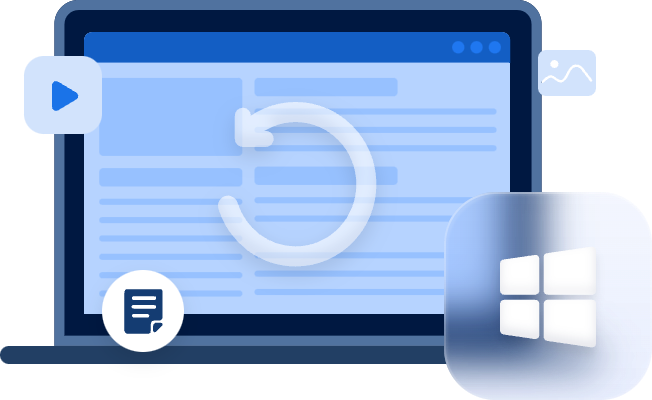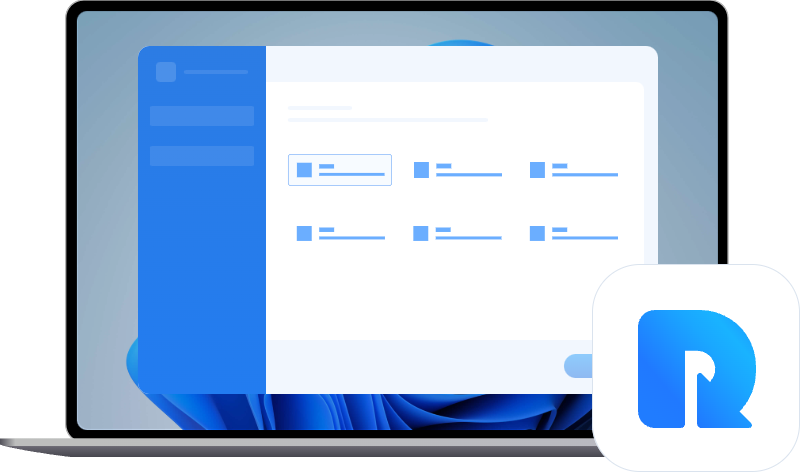What Will Happen if I Decline Windows 11 Upgrade
This extensive article delves into the consequences and considerations of not upgrading to Windows 11. It includes a comprehensive walkthrough of the upgrade process, an exploration of Microsoft's support timeline, an introduction to MyRecover for data recovery.
Greetings, tech enthusiasts! Today, we're unpacking a hot topic: "What will happen if I decline the Windows 11 upgrade?" We'll explore every angle of this decision, from potential impacts to the upgrade process, and even how MyRecover can help with data recovery. Let's dive in!
What Will Happen If I Decline Windows 11 Upgrade?
Understanding the Immediate and Long-Term Effects
Choosing not to upgrade to Windows 11 might seem straightforward, but it's essential to weigh the immediate and future implications. In the short term, your Windows 10 will operate normally. However, you'll miss out on new features and improvements that Windows 11 brings. It's like sticking with an old smartphone model - it works, but you're not getting the latest upgrades and efficiencies.
Considering Future Support and Security Risks
By continuing with Windows 10, you're dependent on Microsoft's support timeline. Currently, Windows 10 is still receiving security updates, but this is set to end in 2025. After this, your system will be more vulnerable to security threats and compatibility issues with newer software.
Making the Decision to Upgrade
Evaluating Your Needs and Preferences
Before jumping into the Windows 11 bandwagon, consider the following:
Hardware Compatibility: Does your PC meet the system requirements for Windows 11?
Software Compatibility: Are your essential applications compatible with Windows 11?
User Adaptability: Are you ready to adapt to a new operating system environment?
Performance and Features: Will the new features of Windows 11 enhance your computing experience?
The Windows 11 Upgrade Process
Step-by-Step Guide
Ready to upgrade? Follow these steps:
Check System Compatibility: Use Microsoft’s PC Health Check app to ensure your PC meets Windows 11 requirements.
Back Up Your Data: Always back up important files to avoid data loss.
Initiate the Upgrade: Navigate to 'Settings' > 'Update & Security' > 'Windows Update' and click 'Check for updates'.
Download and Install Windows 11: If your PC is eligible, you'll see the option to upgrade. Follow the on-screen instructions to download and install.
Understanding Microsoft's Upgrade Policy
Will Microsoft Force Users to Upgrade?
Microsoft encourages users to upgrade to Windows 11 but does not force the transition. The decision is yours, though they emphasize the benefits of the new OS.
How Long Will Windows 11 Be a Free Upgrade?
Windows 11 is currently a free upgrade for eligible Windows 10 users. While Microsoft hasn’t announced an end date for this offer, staying informed about policy changes is advised.
Using MyRecover for Data Recovery
Safeguarding Your Data During the Upgrade
Data loss during upgrades can be a real headache. MyRecover is here to help. Here’s a step-by-step guide to using it:
Install MyRecover: Download and install MyRecover on your PC.
Select the Recovery Location: Choose the drive where you lost your files.
Scan for Lost Files: Initiate a scan to search for recoverable files.
Preview and Recover: Look through the found files, select what you want to recover, and click 'Recover'.
Key Features of MyRecover
MyRecover shines with its deep scanning capability, file preview option, and support for various file formats. These features ensure a high recovery rate for your lost data.
Updates and Support: Staying Informed
The Importance of Keeping Your System Updated
Whether you opt for Windows 11 or stick with Windows 10, it's vital to keep your system updated. Regular updates ensure your PC stays secure and functions optimally.
Seeking Support and Resources
If you encounter issues or have questions, both Microsoft and various online communities offer extensive support and resources for Windows users.
Should I Upgrade to Windows 11 Now?
Assessing the Right Time for Your Upgrade
Deciding when to upgrade to Windows 11 depends on your specific situation. Consider the compatibility of your hardware, the necessity of new features, and your comfort with change. Sometimes, waiting for a few updates can be beneficial, as early versions of new operating systems can have teething issues.
Windows 10 Versus Windows 11: A Comparative Look
Weighing Your Options
Compare the two operating systems in terms of interface, performance, and features. Windows 11 offers a more modern design and new functionalities but requires getting used to. Windows 10, meanwhile, is familiar and stable.
Conclusion
Deciding whether to upgrade to Windows 11 is a significant choice. It requires considering your personal and professional needs, the readiness of your hardware, and your comfort with change. Remember, tools like MyRecover can ease the transition by safeguarding your data.
FAQs
What happens if I continue to use Windows 10 after 2025?
Post-2025, Windows 10 will no longer receive security updates, making your system more vulnerable to security risks and software incompatibilities.
Can I revert back to Windows 10 after upgrading to Windows 11?
Yes, there is an option to roll back to Windows 10 within a specific time frame after upgrading to Windows 11.
Are there significant performance improvements in Windows 11?
Windows 11 offers several performance improvements, particularly in terms of speed and efficiency, especially on newer hardware.
How user-friendly is Windows 11 for someone familiar with Windows 10?
Windows 11 has a learning curve, but it retains many core elements of Windows 10, making the transition easier for existing users.
Can I use Windows 11 without a Microsoft account?
A Microsoft account is required for some features in Windows 11, but you can use a local account for basic functionalities.


